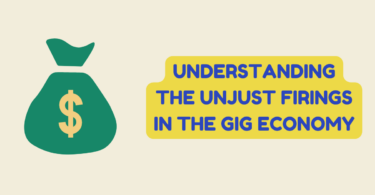
AI
Artificial intelligence (AI) is transforming the digital marketing industry rapidly. It’s no wonder since AI is amazing at analyzing vast amounts of data, and marketing is all about data.
Thanks to this revolutionary technology, the marketing experience is changing for both sides — the marketers and the audience — and it seems both are seeing benefits from it. Marketers get a more efficient, lean, and effective process, whereas the audience gets a more personalized experience.
Here are some ways AI is changing digital marketing.
Finding the Right Audience
In essence, marketing used to be about creating needs, and now, thanks to AI, it’s about giving consumers what they actually need. In other words, marketers can now target the right demographic, i.e., the audience that could truly be interested in the product or service.
Discovering the right target audience and the ideal customer profile is achieved through careful data analysis of customer behavior and various online trends, such as website visits and social media behavior. Data in itself is not enough. There’s way too much of it to infer meaning from it at a glance. That’s where AI steps in.
AI-based software can sift through endless amounts of data in minutes and come out with meaningful results and insights — a process that would take many people and countless hours to finish with limited success.
The main advantage of AI here is that it only needs a gentle nudge in the right direction, and it can quickly learn and develop on its own.
Content Marketing
Natural language processing (NLG), the ability of AI-based software to understand and produce human language, has opened a world of possibilities for content creation and curation. Even though marketers still can’t rely on AI to write more creative pieces, such as blog posts, on its own, it can help in many ways.
For example, AI can help you analyze the effectiveness of your content and suggest ways to enhance it based on what users enjoy the most on the web in general. It can perform audits for you, letting you know which pieces of content could use some improvements.
If you’re a content manager and need to come up with a variety of relevant topics in a short time, AI can generate some ideas for you. Furthermore, it can help generate the content itself by anticipating what you’re about to write. Some pieces that usually follow the same structure and form, such as news articles, can be written by AI in their entirety.
Customer Service
The most important part of digital marketing is making sure the customer is satisfied and their needs met promptly. Luckily, AI doesn’t only work in the backend — it can cater directly to customers and handle their questions and requests, resolve their issues, and even lead them through the entire customer journey without involving any human agents.
This is done through the use of AI-powered chatbots. These bots can even reach out to the customer proactively and offer their assistance.
There are numerous benefits of using bots over live support. For starters, bots are available round the clock and can cater to everyone at the same time, whereas a human agent can only handle one request at a time. They can perform backend operations instantly, whereas a person would have to input any data manually and take some time to process it. You can also set them up for multiple languages.
Smart Search
Remember the times when you would type something in Google’s search box and get only exact matches? Those days are long behind us as Google’s AI algorithm has helped the browser become much smarter and understand us better.
Thanks to the massive input of billions of users and AI’s machine learning ability, Google is becoming fantastic at inferring our wants and needs and giving us exactly what we want even before we know what it is.
It’s also much better at determining what type of content provides actual value to the user and sanctioning the techniques used to deceive the search engine and user, such as keyword stuffing and similar.
What’s more, thanks to advances in AI-based voice recognition, voice search is on the rise. You can now talk to your Alexa or another AI-based assistant and ask them to find whatever you need online.
Personalization
Just as AI allows marketers to find an audience that’s a great match, so can it help them offer potential customers more personalized service. We’ve all had that feeling that our phones are reading our minds and showing us products and services we have recently thought about. However, that’s simply an AI algorithm analyzing our behavior online and showing us more personalized content to match our interests.
Netflix, Spotify, and similar services are great examples of AI-based product recommendations. Basically, you’re recommended shows, movies, or music based on the content you’ve consumed so far.
This feature is also used to upsell products in e-commerce stores and recommend items a consumer may like based on their searches and previous purchases.
Social Media Monitoring
Social listening is an important part of analyzing the public’s attitude toward a brand and managing a business’ reputation. Since social media is an extremely popular tool in marketing, brands need to find ways to eavesdrop on all the social conversations online relevant to the business, and that’s impossible for people to do alone.
AI can successfully track all the mentions of a brand, understand if the message or comment is positive or negative, and even respond in the name of a company. These tools existed before AI, but AI has taken them to another level.
These are only some of the uses of AI in digital marketing. The technology is penetrating every marketing practice in some way, and it’s transforming the world of marketing into a data-driven field, eliminating any intuition and guesswork. You can now collect competitive intelligence instead of guessing what’s working for your competitors. Instead of hoping the audience will like something, you can get a data-based prediction on it.
We have yet to see what major changes AI will bring, but for now, it seems to be benefiting everyone involved.






